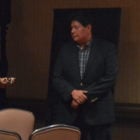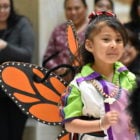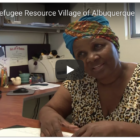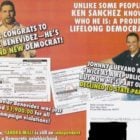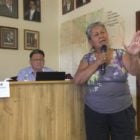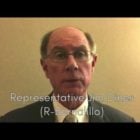New institute aims to strengthen Native influence
|
A newly formed institute hopes that by synthesizing indigenous wisdom with hard-won knowledge of how American institutions work it can become a powerful advocate and resource for New Mexico’s Native American population. The Native American Budget and Policy Institute, formed in late February at the Tamaya resort on the Santa Ana Pueblo, aims to create a dynamic dialogue drawing from both traditions. Using a network of academics, policy makers and tribal elders, the Institute wants to strengthen the influence of Native Americans in policy making at the local, state and potentially federal levels. The goal is to “create the kind of balance” that allows native peoples to “become architects of policy, the architects of laws where they are necessary” — all toward improving the lives of Native American children and their communities, said Regis Pecos, a former governor of Cochiti Pueblo and one of the Institute’s founders. The Institute’s 11-member governing council seems to embody that vision.
